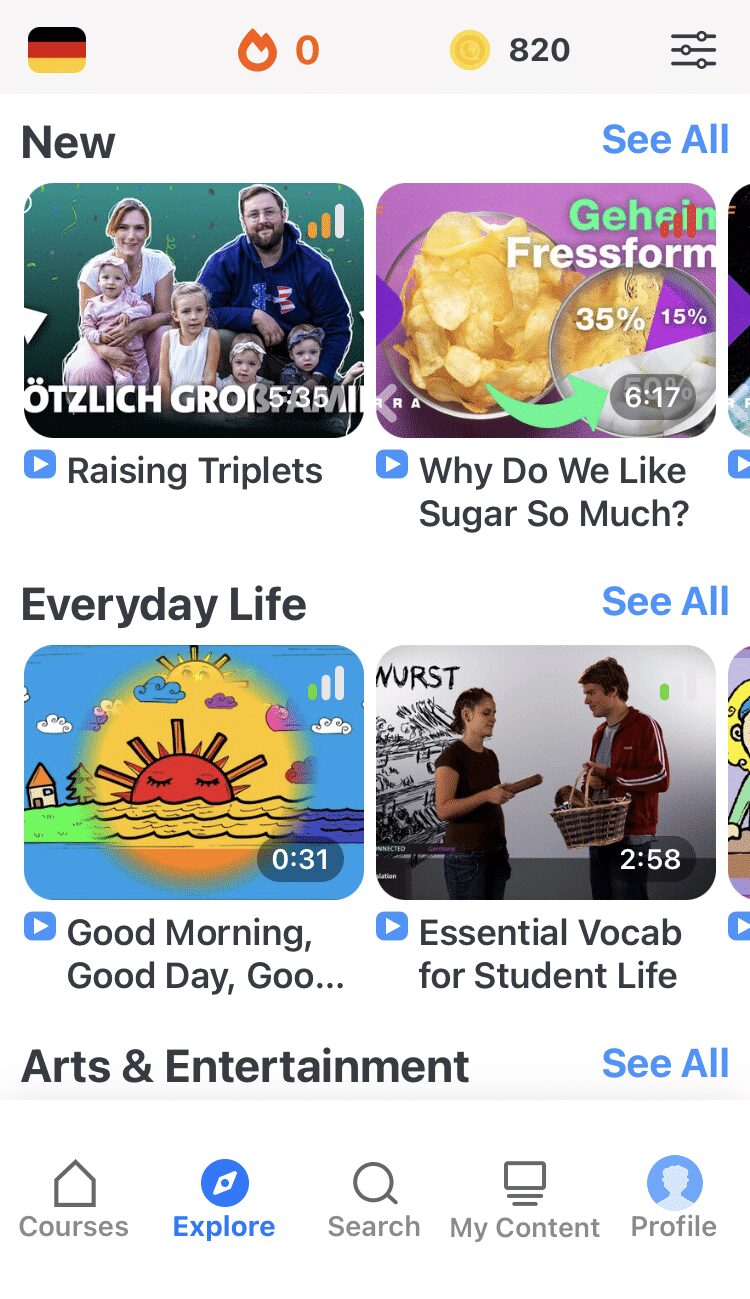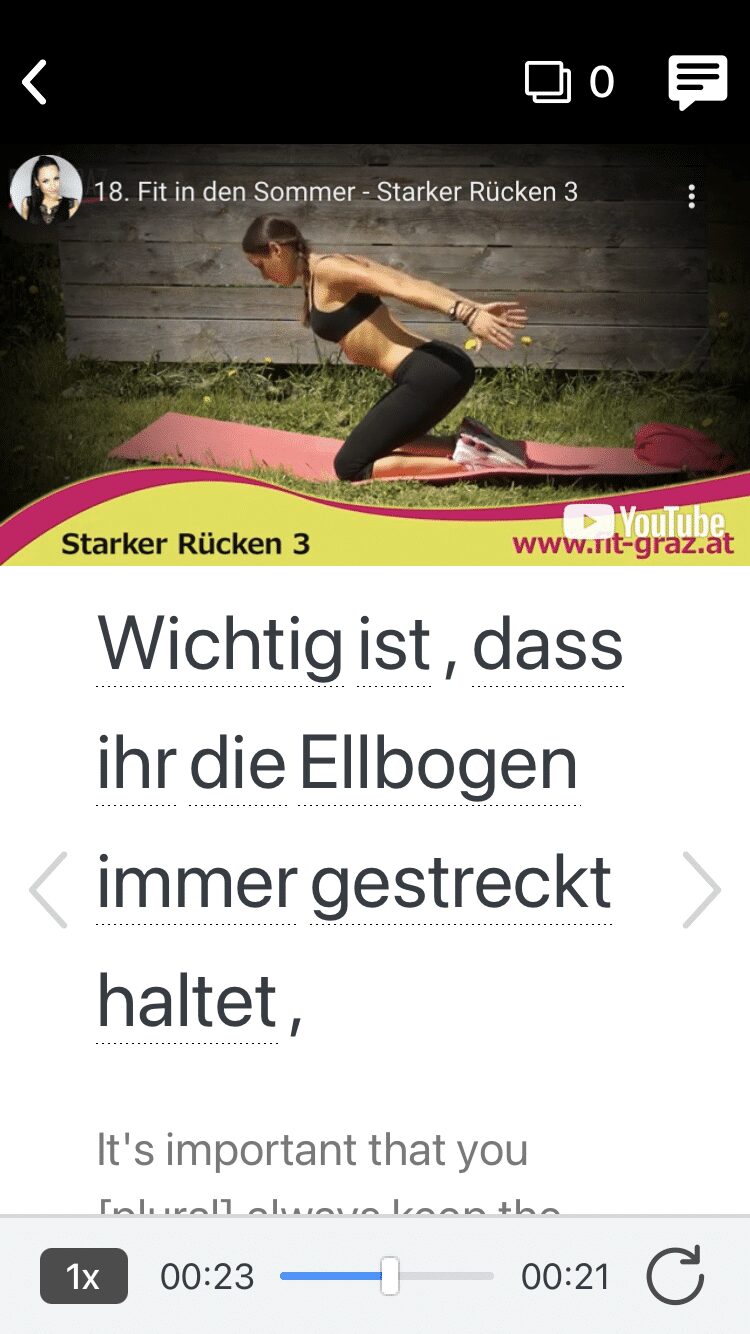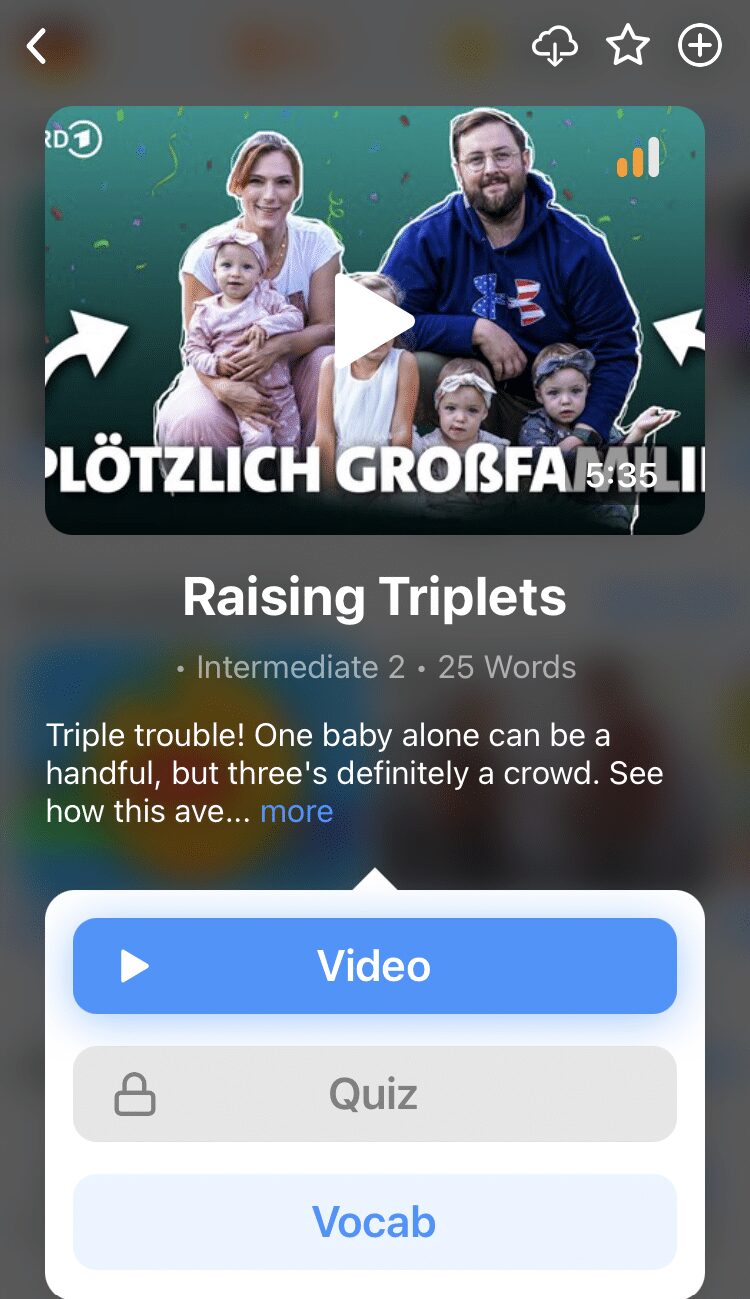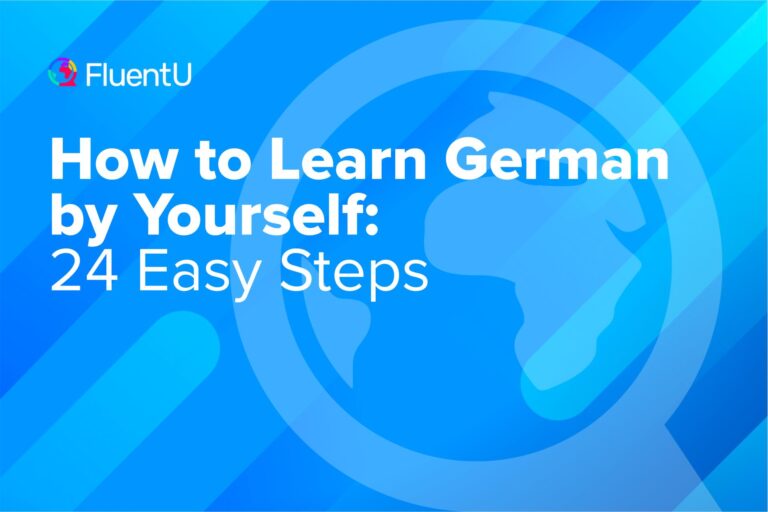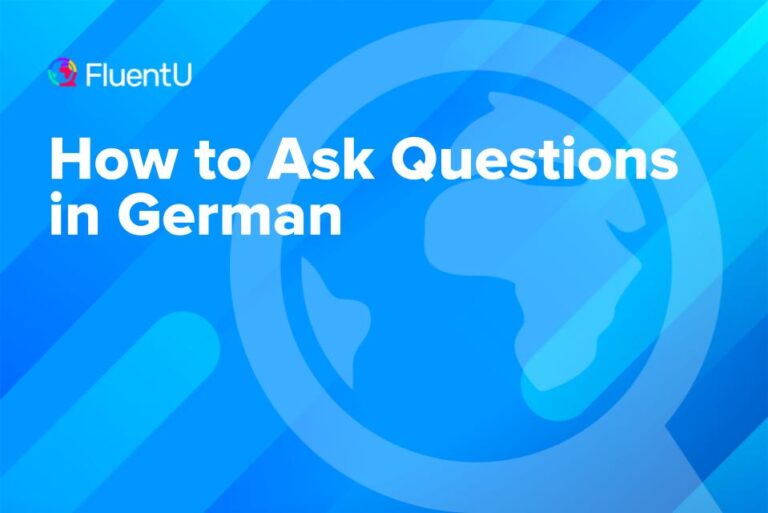Contents
- 1. Use German Word Frequency Lists
- 2. Embrace the Familiar with German Cognates
- 3. Take Note of Gaps in Your Speech and Writing
- 4. Become a Leseratte (Bookworm) and Read
- 5. Zone Out to Audiobooks
- 6. Bop to German Songs
- 7. Tune In to German Radio and Podcasts
- 8. Seek Out New Words in German Movies and Television
- 9. Look for Synonyms and Antonyms
- 10. Remember the Duden Is Your Friend
- 11. Talk It Out with a Language Partner
- 12. Use Pen and Paper
- 13. Use Flashcard Apps
- 14. Play Scrabble in German
- And One More Thing...
How to Improve Your German Vocabulary

Developing your German vocabulary is one of the most important keys to being able to express yourself freely and sound like a native speaker.
So read on to learn about 14 powerful strategies that will work really fast for improving your German vocabulary, and spice up what you already know how to say.
Get ready to take your German from good to great!
Download: This blog post is available as a convenient and portable PDF that you can take anywhere. Click here to get a copy. (Download)
1. Use German Word Frequency Lists
If you know the 100 most common German words, then you know about 50% of the spoken language. However, you don’t want to limit yourself to learning just those, as many are prepositions, conjunctions and pronouns.
Similarly, you need to know about 1,300 German words in order to understand 85% of written German. It may sound overwhelming but it’s totally doable!
This is known as 80/20, or the “Pareto principle,” which has many applications—from a perspective of how to learn German vocabulary, the idea is that focusing on the right 20% of German vocab words will produce 80% of your results.
Word frequency lists are your friends in this and can be found online. One good place to start is here.
MosaLingua offers an app and learning system pre-loaded with useful content that functions around the 80/20 philosophy. They also offer spaced repetition to maximize the time you spend learning.
Once you’ve used their pre-selected material to get started, you can continue learning with MosaLingua Web, which allows you to easily create your own flashcards from online content and sync your content and progress across all devices.
Check out this excellent video to learn 300 German core words:
2. Embrace the Familiar with German Cognates
Even if you’re not aware of it, German has a lot of words that are very easy to recognize. These are called cognates. It’s a term that describes words that have been “borrowed” from other languages or share the same root and are therefore very similar.
Because of their common heritage, German and English have a lot of these. Check out this list. More can be found by googling “German cognates,” “German English loan words” and finally, “German words in English.”
3. Take Note of Gaps in Your Speech and Writing
There are many ways to figure out what you don’t know.
Try to name fifteen items in your immediate vicinity, with their genders and plural forms. If that was easy, describe them in detail. Can you go from “the book” to “the thick, old book with a leather binding and highlighted pages”? Or do you need to look up “leather” and “highlighted”? (It’d be “das dicke, alte Buch mit Ledereinband und farbig hervorgehobenen Seiten,” by the way.)
4. Become a Leseratte (Bookworm) and Read
To improve your proficiency, it’s also imperative that you learn to read German. Whether you start off with children’s books, get a German textbook or branch out to German blogs—just read, read, read (and make sure to write down words you don’t know)!
My personal preference is to read books in my target language on my Kindle, as it offers instant lookup of words I don’t understand.
5. Zone Out to Audiobooks
If you favor a more aural-based approach to learning but still want to utilize German texts, you can turn to German audiobooks instead. They’re widely accessible for most smart devices, so you can get your learning done on the go!
With audiobooks, you can still learn in-context German vocabulary. The added bonus is that you can hear the language as it’s spoken, which can thus improve your listening comprehension and pronunciation skills. In addition, you can always rewind or pause the narration as you’d like.
6. Bop to German Songs
German songs with lyrics can be one of the most engaging ways you can pick up new German vocabulary. Different genres can expose you to different uses of the language, whether it’s a crooning ballad or a hardcore rap song.
Plus, because of the repetitive and catchy nature of song lyrics, whatever words you learn can be more easily memorized.
Songs are also quite good at teaching you more casual, idiomatic or slang German. Make sure you keep an ear out for them so you can add some hip and current lingo to your vocabulary bank!
7. Tune In to German Radio and Podcasts
Radio shows and podcast sessions make for great background noise, but they can be just as viable as learning resources.
Whether scripted or unscripted, German radio and German podcasts can expose you to a lot of German vocabulary and phrases as they’re naturally used.
Learning with podcasts and radio is also a very portable experience since you can listen to them anywhere. Plus, if you listen to regional-based stations and streams, you can learn some unique words and broaden your German language horizon!
8. Seek Out New Words in German Movies and Television
As I just mentioned, don’t be a passive reader or listener.
When you watch and TV movies in German, you’re guaranteed to encounter words you don’t know. That’s normal. What’s important is what you do with those words. Don’t let them float in one ear and out the other. Look them up! Jot them down! Review them often! Here’s an example of how you can do that with the German-dubbed version of “The Simpsons” from the FluentU YouTube channel:
It’s also important that you find reliable, high-quality resources to mine vocabulary terms and sentences from. You want to learn how to reproduce the language in the correct way, so if you’re reading people’s tweets, for instance, you might pick up some bad habits.
Instead, try out some resources that you know will help you learn the language as it’s spoken and consumed by native speakers.
For example, you could use a graded reader, like Olly Richards’ “Short Stories in German for Intermediate Learners,” to expand your vocabulary and strengthen your understanding of grammar. Plus, this series is constructed in a way that the stories get gradually more difficult, so you’ll constantly be challenging yourself to improve your German skills.
You could also use FluentU to access a full library of native materials that are categorized by difficulty and topic of interest.
FluentU takes authentic videos—like music videos, movie trailers, news and inspiring talks—and turns them into personalized language learning lessons.
You can try FluentU for free for 2 weeks. Check out the website or download the iOS app or Android app.
P.S. Click here to take advantage of our current sale! (Expires at the end of this month.)
9. Look for Synonyms and Antonyms
Let’s say you’re really focused on the goal of learning German. Beginning German texts often contain the word pair fleißig and faul (hardworking and lazy), so you might already know those. But we could also call you strebsam (ambitious) or zielstrebig (goal-oriented), and your less-determined classmates could be träge (idle) and nachlässig (negligent).
Doesn’t that sound fancier?
Native speakers often know many different words to express the same ideas. If you want to become fluent, you should have acquiring this diversity of language in mind as a major goal. A good dictionary or thesaurus will always point you in the right direction.
10. Remember the Duden Is Your Friend
In Germany, Duden is practically synonymous with “dictionary.” It’s like Merriam-Webster or the OED in English, but even more so. It is simply the dictionary.
Lucky for you, we live in the age of the internet, so the entire thing is at your fingertips for free. If we look at zielstrebig for a third time, the Duden gives you a definition, a list of synonyms (which you can click on for further definitions to distinguish connotations), the pronunciation, a huge table of adjective endings and more.
You may not feel ready to use an all-German dictionary rather than an English-German one, but as you become more advanced this will become more important. A bilingual dictionary will give you a simple one-word translation, but unless the word translates 100% perfectly you will still be missing those important connotations.
11. Talk It Out with a Language Partner
As soon as you can communicate even a little in your new language, you should get yourself a German language partner.
Talking to people, especially about your normal life, will yield a plethora of useful words and phrases and bolster your vocabulary list immensely.
One of my favorite places to find a German language partner online is Tandem, which is an app that matches up language partners using a social media like format.
12. Use Pen and Paper
It’s the oldest of the old-school, but it still works: keep a vocabulary notebook with words on one side of the page and meanings on the other.
Studies show that the mere act of writing things down longhand will help you commit them to memory. I’m not saying to write them 500 times on the blackboard like Bart Simpson in detention, but I am saying that writing is an important memory tool.
Similarly, flashcards are an oldie but a goodie. German word on one side, definition or translation on the other. Repeat until satisfied. Try to look at the English and recall the German for maximum active vocab building, even if the other way around might feel easier.
If you’re looking for a serious challenge, write the German word on one side and its all-German definition on the other. A monolingual dictionary, as mentioned before, can provide you with these definitions. Then you can finally leave the English behind!
13. Use Flashcard Apps
It’s a bit hidden, but my favorite online bilingual dictionary, dict.cc, has a built-in vocabulary trainer. Every time you look up an English or German word, you can click on the word and save it to a deck of digital flashcards. Then you can use your flashcards for review, which also tests your spelling as you type in your answers. Chances are, you already need an English-German dictionary from time to time, so why not use one that can train you rather than simply spit translations at you?
Another favorite among language students is Anki, a flashcard app that you can sync across multiple devices such as your PC and smartphone for vocabulary review on the go. Similar to the dict.cc trainer, Anki uses a system in which tougher words show up more often than the words you consistently get right. Unlike dict.cc, though, Anki times these review intervals down to the minute, suggesting exactly when and how often you should review something in order to commit it to memory.
MosaLingua takes things a step up with another flashcard app that includes SRS and is customizable, but that also makes it easy for you to look up translations and create your own flashcards as you’re reading native material. With MosaLingua Web, you get access to all these features plus a specially-selected library of authentic content to browse. The flashcards you create on the web version of the program are synced with the app version for maximum convenience.
14. Play Scrabble in German
Playing Scrabble in German can be an effective and enjoyable way to expand your vocabulary in the language.
By forming words with the tiles provided, you’re not only reinforcing spelling and pronunciation but also encountering new vocabulary.
Scrabble encourages strategic thinking as you aim to maximize points, which often leads to exploring various word combinations and their meanings.
Here’s a site that offers online Scrabble games in German.
Expanding your vocabulary is a never-ending task. Even in your native language, there’s always more to know.
We’ve given you 14 key strategies. Now go forth and master them.
Download: This blog post is available as a convenient and portable PDF that you can take anywhere. Click here to get a copy. (Download)
And One More Thing...
Want to know the key to learning German effectively?
It's using the right content and tools, like FluentU has to offer! Browse hundreds of videos, take endless quizzes and master the German language faster than you've ever imagine!
Watching a fun video, but having trouble understanding it? FluentU brings native videos within reach with interactive subtitles.
You can tap on any word to look it up instantly. Every definition has examples that have been written to help you understand how the word is used. If you see an interesting word you don't know, you can add it to a vocabulary list.
And FluentU isn't just for watching videos. It's a complete platform for learning. It's designed to effectively teach you all the vocabulary from any video. Swipe left or right to see more examples of the word you're on.
The best part is that FluentU keeps track of the vocabulary that you're learning, and gives you extra practice with difficult words. It'll even remind you when it’s time to review what you’ve learned.
Start using the FluentU website on your computer or tablet or, better yet, download the FluentU app from the iTunes or Google Play store. Click here to take advantage of our current sale! (Expires at the end of this month.)

